For Muslim women, dressing modestly is an act of worship and is done to strengthen one's faith and spirituality, but there are also women who dress modestly for totally different reasons. We all know that having autonomy over our own bodies is a basic right, and yet, there is constant pressure and bias against women who decide to wear more. At times, it has felt as if feminine liberation only looked a particular way and there was no room for me within it.
I've personally always found strength in breaking the norm of what social and fashion standards mean when living in a Western society. With women's bodies and dress codes constantly being a topic for debate, choosing to wear the hijab and dress modestly was, for me, an act of rebellion against beauty and fashion standards at the time. Instead of wearing mini skirts and mini dresses on their own, I styled them layered over jeans or maxi skirts; instead of wearing crop tops on their own, I wore them over loose, long-sleeve blouses for a layered effect.
I've never felt like I've missed out on partaking in a trend entirely — I have just redefined how it could work for me.
When I first started wearing the hijab at 15 years old, I played it mostly safe with fashion trends and styles because I wanted to just fit in in high school, but when I started university, I began exploring who I am and what I like. Launching my online profile felt like a mission to be creative and also to break down stigmas and prove to the world that Muslim women are liberated and beautifully dynamic.
Upon reflection, I can acknowledge that was a lot of pressure to put on myself and mostly impossible to assume I can change everyone's prejudiced thinking on my own. But it did help me find an online community of like-minded women who have had similar experiences to me, and who are also representing their faith and exploring their creativity through fashion.
Ahead, I interview some of my favorite online creatives from around the world, who also happen to be Muslim, and are exploring modest fashion through their content. They inspire me in so many ways and I hope you can also find some inspiration in their platforms, too.
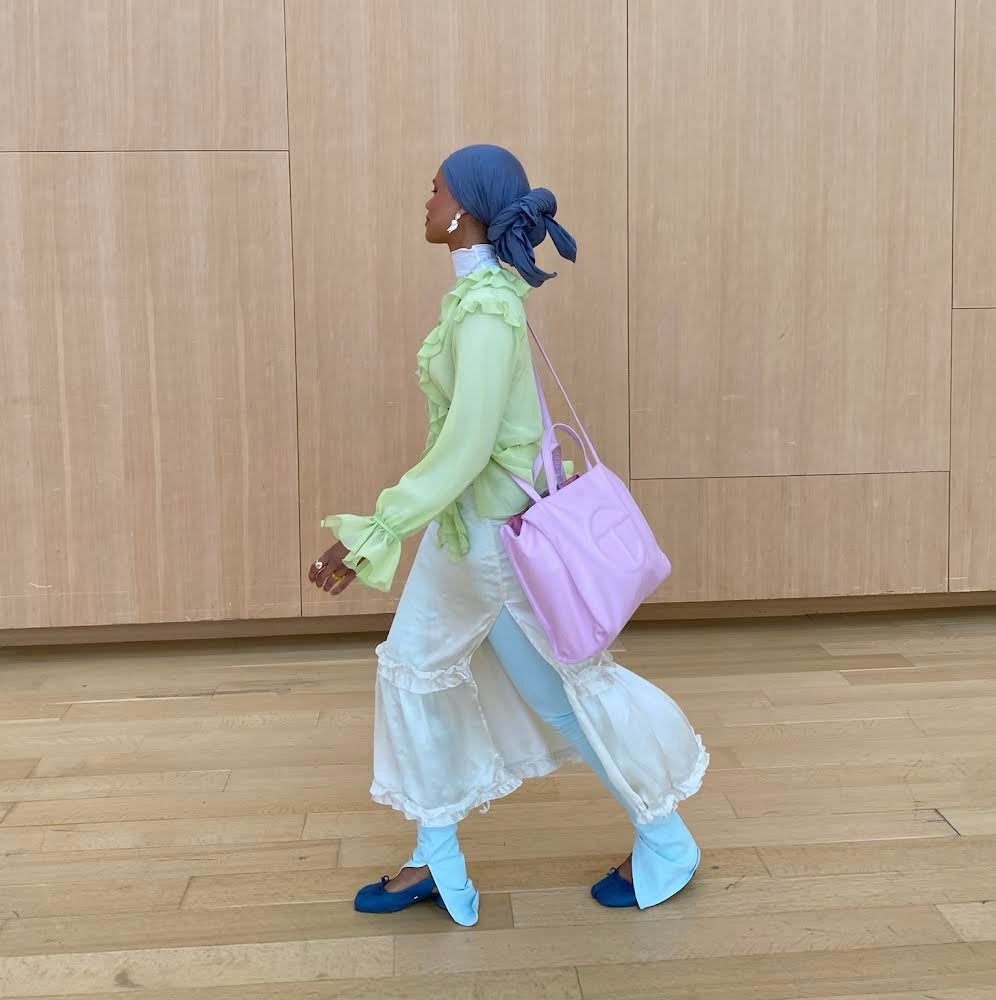
Age: 25
Location Mississauga, Canada
Describe your style in a few words... At the moment, I’d say my style is grunge fairy meets cottagecore, camp Y2K, slightly chaotic coquette, and consistently playful.
How do you express yourself through your choice of clothing? I see the clothing I choose as an extension of who I am. Being a visibly Muslim woman, my beliefs are written on my sleeve, and laid upon my head. What you wear forms how people interpret your being, one article of clothing altering people’s perception. My faith is important to me and so is my creativity and playfulness. And I think that my stylistic choices show that I dare to dream and wonder. The way filmmakers and photographers enchant themselves with memories, create stories and share that with people. I think you can do that instantly with clothing. The combination of celeste blue and lavender I had just seen in a spring bouquet, the swirls and sparkle of my aunt’s toub (traditional Sudanese dress) at my sister’s wedding, the way the afternoon light waltzed around the glass surfaces of my family home. I carry those memories with me and infuse them into what I wear. I always want to tell a story, whether familiar and gentle or imaginative and boisterous.
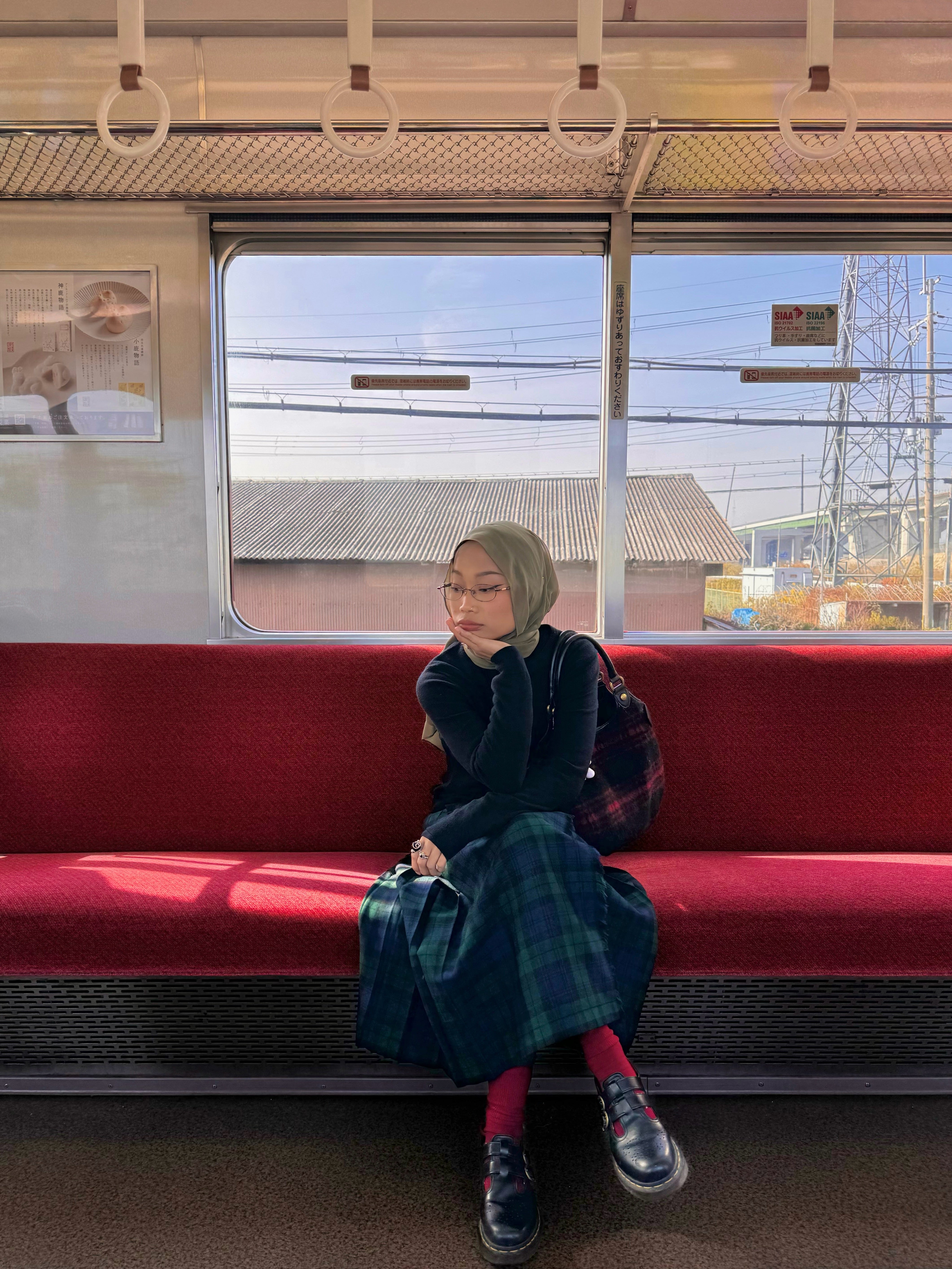
Age: 23
Location: Melbourne, Australia
Describe your style in a few words... This is tricky for me because I don’t like putting myself in a box and I just wear whatever I like! But I often see myself dressing towards preppy, early 2000s fashion and late '90s — think Phoebe Buffay! I also take inspiration from vintage Japanese fashion, such as outfits from FRUiTS magazine. What I’m sure of, is that I like dressing in lots of plaid!
How do you express yourself through your choice of clothing? As a Hijabi, clothing is definitely one of the biggest ways I express myself in order to showcase my style, personality and faith. The hijab actually encourages me to be creative with my outfits, as I would need to think of different ways to modest-ify clothes, usually through lots of layering, and opting for clothing items like maxi skirts or knee-high boots. I always seek out different fashion inspirations, which is why I don’t believe in sticking to just one aesthetic, and also why it’s important for me to shop second-hand as I don’t believe that we need any more clothes in this world! Sustainable fashion is an accessible way for me to experiment with different styles while being conscious of overconsumption.
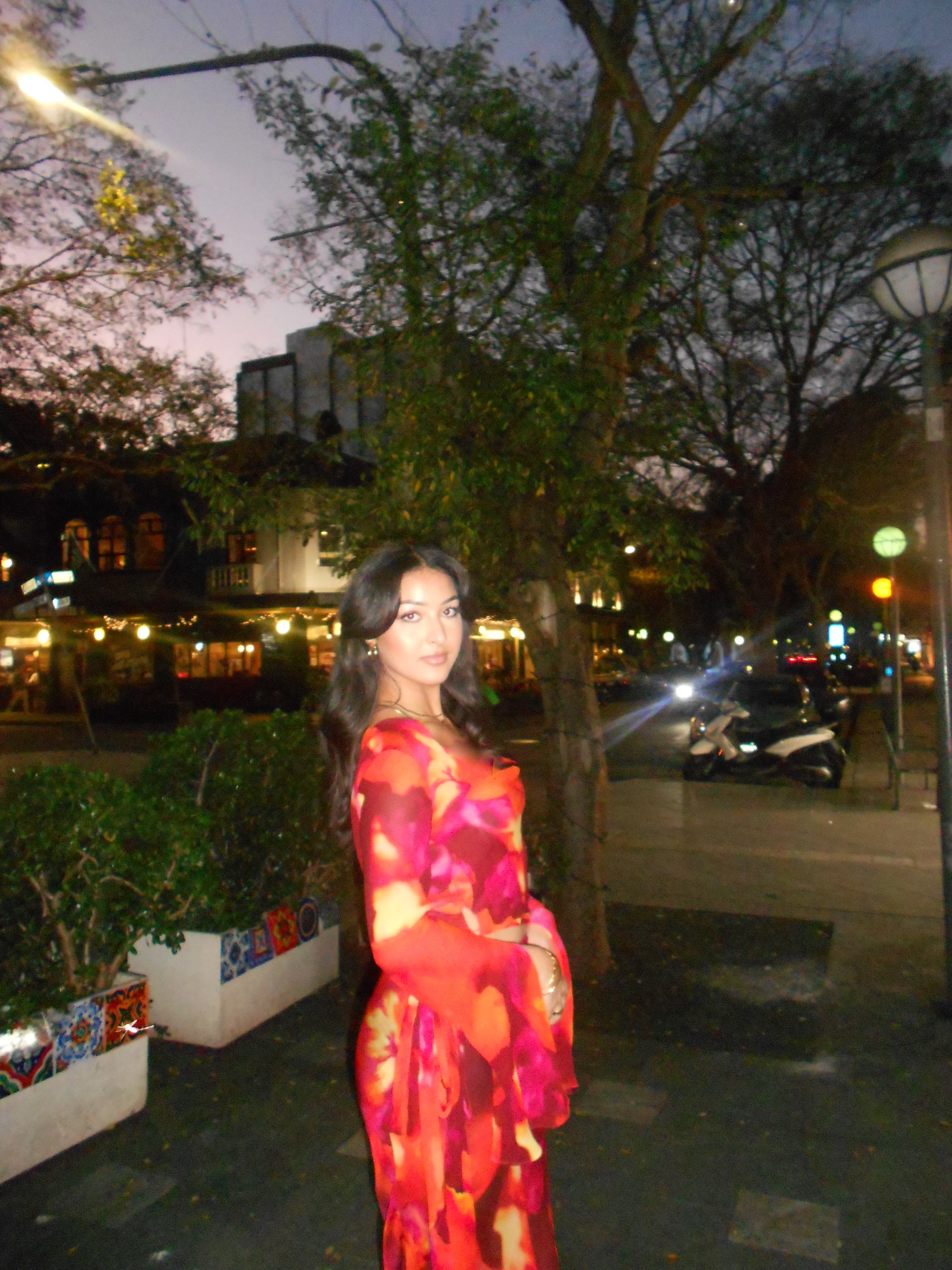
Age: 25
Location Adelaide, Australia
Describe your style in a few words... Modest, elegant, but still fun.
How do you express yourself through your choice of clothing? I express myself by wearing pieces that represent my beliefs and my Syrian background, while also trying to participate in current trends. With modest fashion, I think it's very easy to wear basics every day (which is beautiful in its own right), but I'm currently having a lot of fun trying to be creative in incorporating more fun/trendy pieces in a modest and ethical way. This looks like up-cycling pieces already in my wardrobe and making a conscious effort to purchase from ethical brands that align with my beliefs and values.
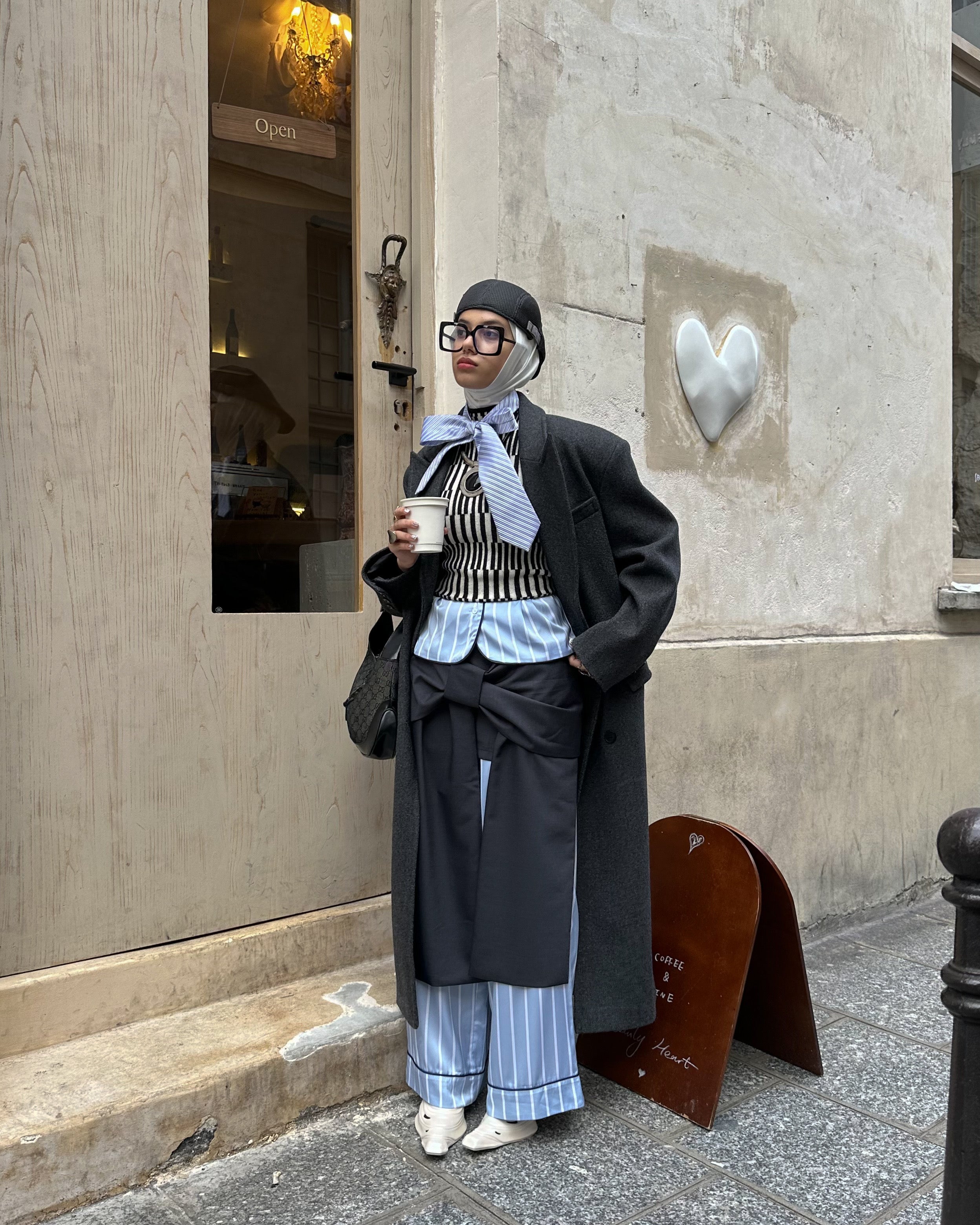
Age: 19
Location: Ukraine, Kyiv
Describe your style in a few words... Bold, fun, well-balanced, sharp and eclectic. My style represents my personality, my religion and my desires.
How do you express yourself through your choice of clothing? My wardrobe reflects my love of maximalism and standing out. What I have noticed, is that I don't like to limit myself and my style by only one or two aesthetics. We all have different moods every day, and for me, it’s important to follow them and express them through clothing, so I can feel comfortable with my look. One day, I can be grungy and sharp, and another day I can be very elegant and classy. I feel like clothes help me bring out stuff that is already inside of me.
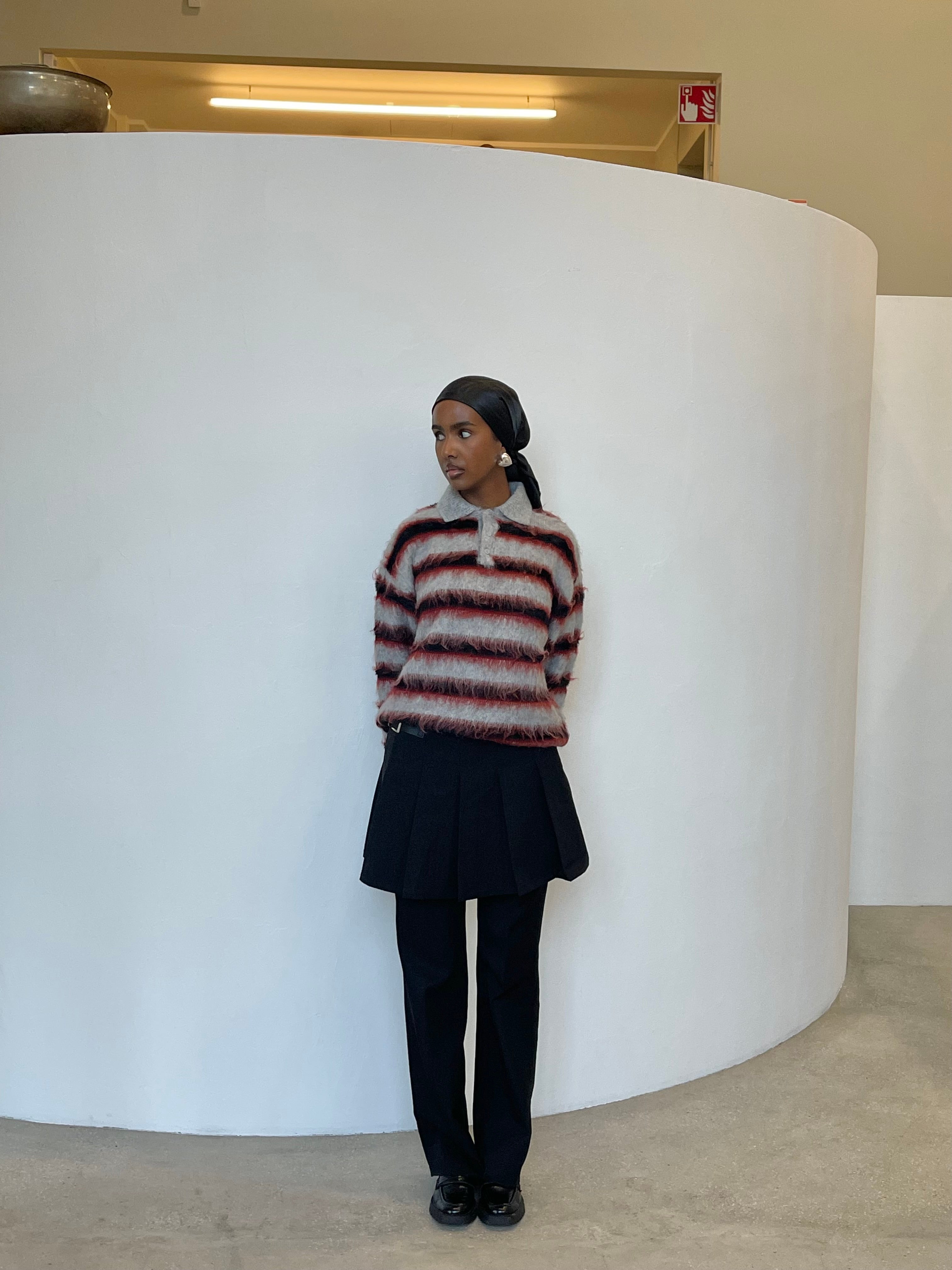
Age: 26
Location: Helsinki, Finland
Describe your style in a few words... I'm not sure how to word it but I think you could say that my style is minimal with a twist.
How do you express yourself through your choice of clothing? When it comes to my clothing choices, comfort is key! I always try to dress in a way that makes me feel comfortable and confident. Depending on my mood, I might rock a girly outfit one day and then switch to a baggy look the next. Lately, I've been really into clothing items that have unique and interesting details — I feel like they can really make an outfit stand out! I also love layering my outfits and playing around with different textures. It's so much fun!
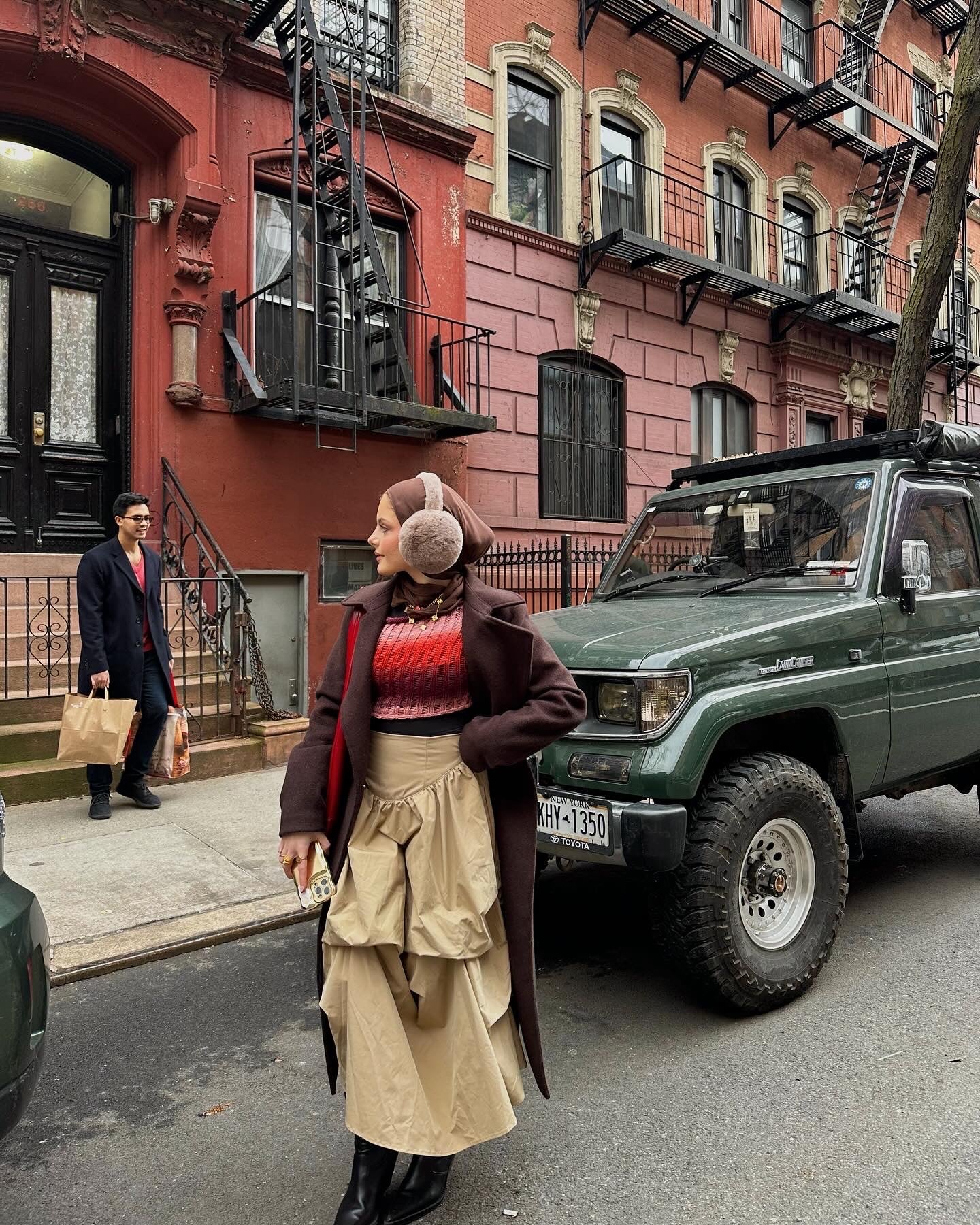
Age: 21
Location: Dallas Fort Worth, Texas
Describe your style in a few words... My style differentiates from day to day as I don’t like to box myself into one specific style — some days I wake up feeling super feminine and girly and other days I am more edgy and eccentric.
How do you express yourself through your choice of clothing? I love a good simple outfit but also I love being a maximalist. I also feel like my style is a reflection of my outgoing, energetic personality and I am not afraid to try new styles, wear bold colors, and throw on different accessories/layers. I think to sum it all up, I just love wearing what makes me feel comfortable and confident!
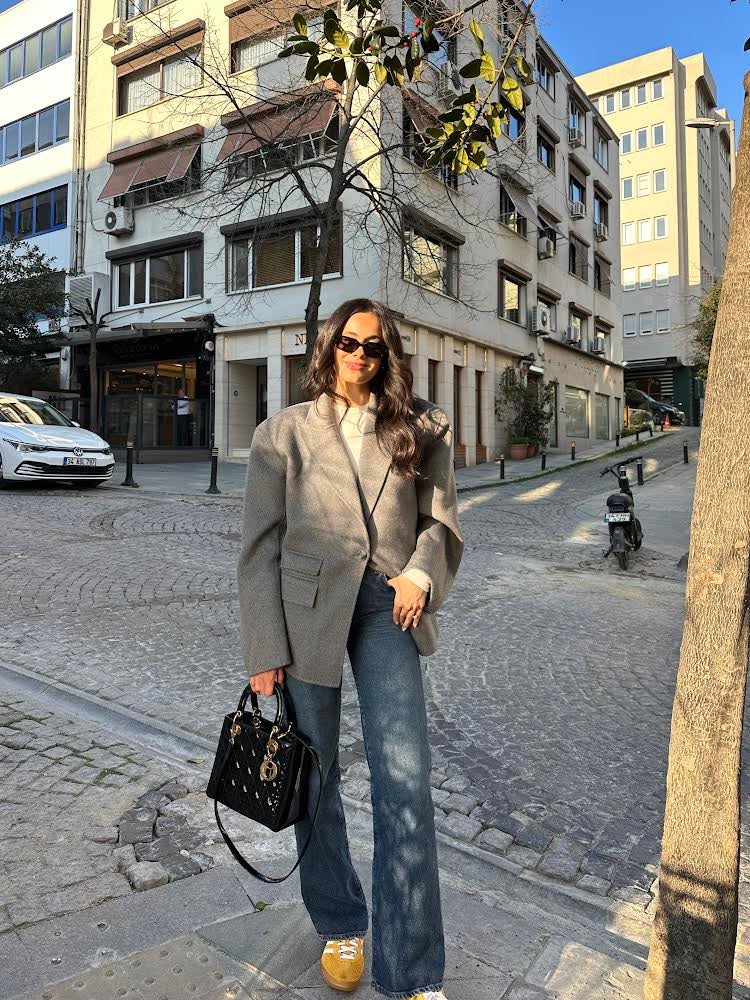
Age: 24
Location Southern California
Describe your style in a few words... Feminine, elegant, casual, and modest.
How do you express yourself through your choice of clothing? Clothing has always been my favorite mode of self-expression; I love allowing my personal style and taste to evolve rather than forcing myself into a box. I think over-defining your style can be limiting. Most days, I love dressing comfortably while also looking elegant and put together. I love adding a fun pair of sneakers to a more dressed-up look to add a pop of color and make the outfit more youthful. My style changes so much depending on the era of life I’m in. Right now, I’m preparing for my wedding in a few months, so I’m naturally gravitating towards more feminine styles and silhouettes: dresses, ballet flats, florals, drop waists, kitten heels, etc!
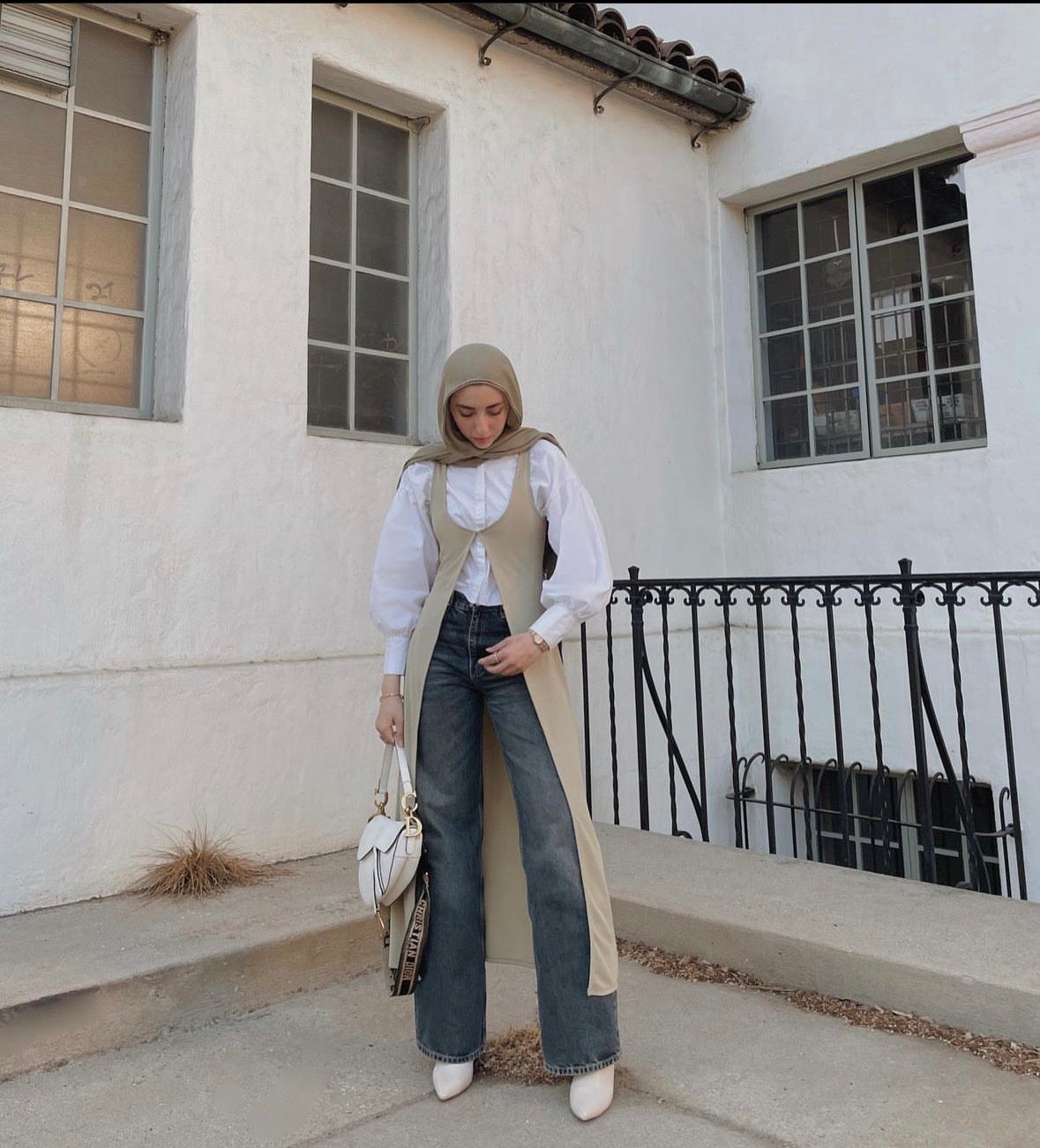
Age: 21
Location: California
Describe your style in a few words... Modest, ethical, creative.
How do you express yourself through your choice of clothing? Through my style, I express my biggest passion in life: my religion. I am able to represent modesty in a creative and humble way, while still feeling unique and creative. It reflects my values, cultural background, and my creative aesthetic. I also love expressing my style through unique pieces I find while thrifting, allowing me to turn my style into a form of art. My style has turned into a passion to show girls around the world that we can dress modestly and still look cool. I’m slowly turning my closet into Hannah Montana’s spinning wardrobe as my alter ego.
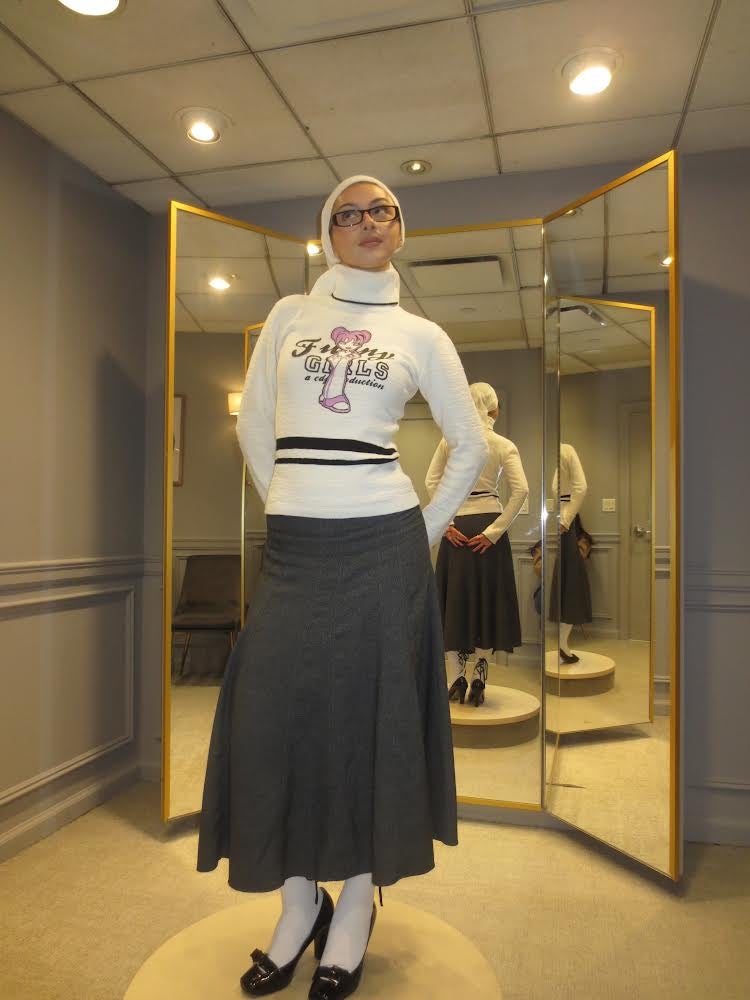
Age: 24
Location New Jersey (loud and proud Jersey girl)
Describe your style in a few words... Meticulous, eclectic, playful, and chic.
How do you express yourself through your choice of clothing? Experiencing the world through the lens of marginality, I have become accustomed to the idea of people making up their minds about me before I really get a chance to speak. The clothes I wear are oftentimes my introduction. So, I try only to wear clothes that speak of me truthfully.
Like what you see? How about some more R29 goodness, right here?
Don't Call Me Brave For Not Wearing Hijab
TikTok’s 75 Hard Style Challenge, Explained
The Best Fashion AI Tools Solving Style Woes
from Refinery29 https://ift.tt/VHjqADi
via IFTTT
